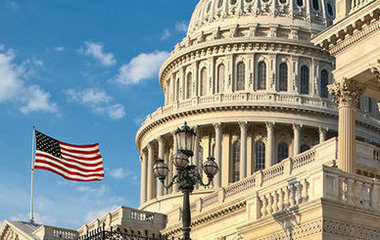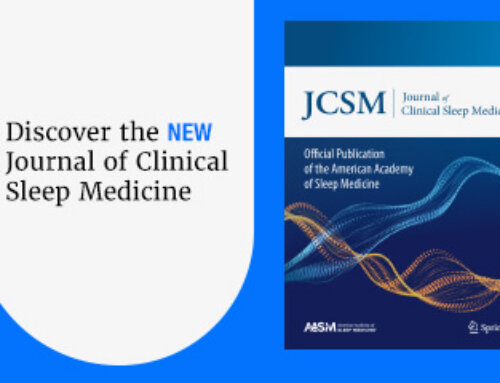On Dec. 19, the Consolidated Appropriations Act, 2023, was finalized. This legislation provides approximately $1.7 trillion in spending and includes policies that extend beyond appropriations in many different areas. The legislation includes physician reimbursement and telehealth provisions that are especially important for sleep medicine clinicians.
Physician Reimbursement
This legislation offsets the planned Medicare Physician Fee Schedule cuts by over 2%, providing a 2.5% positive adjustment to the conversion factor for calendar year 2023, and a 1.25% positive adjustment to the conversion factor for calendar year 2024. The 2.5% positive adjustment for 2023 results in an estimated conversion factor of approximately $33.8872. Accordingly, this adjustment represents a 2.08% cut from the 2022 conversion factor of $34.6062, but it is less than the 4.47% cut based on the initial 2023 conversion factor of $33.0607 announced in the 2023 Medicare physician fee schedule final rule. All AASM payment and reimbursement documents will be updated to reflect this change.
This legislation also impacts the Statutory Pay-As-You-Go Act of 2010 (PAYGO), which requires that automatic payment cuts of 4% be put into place if a statutory action is projected to create a net increase in the deficit over either five or 10 years. The enactment of the American Rescue Plan Act in 2021 triggered PAYGO cuts in 2022. This is a broad PAYGO policy that expands to programs beyond Medicare, but for purposes of health care, the pending impact is that providers would face a 4% Medicare cut beginning Jan. 1, 2023. The PAYGO sequester has never been actually implemented despite being triggered on multiple occasions. Congress most recently delayed the 4% cut until Jan. 1, 2023, in the Protecting Medicare & American Farmers from Sequester Cuts Act, which was enacted into law in December 2021. The most recent legislation “wipes the PAYGO scorecard clean” for fiscal years 2023 and 2024, and it puts any balance for either of those years onto the fiscal year 2025 scorecard. It also stipulates that none of the spending included in this bill will be added to the PAYGO scorecard. Because of the way Congress is delaying PAYGO cuts required in 2023 and 2024 until 2025, it is likely that Congress will have to contend with PAYGO obligations again in two years.
Telehealth Provisions
This legislation extends some of the pandemic-related Medicare telehealth flexibilities for two years through Dec. 31, 2024. Provisions that will be extended include:
- Waivers to the geographic and originating site restrictions
- Expansions to the list of eligible practitioners
- Eligibilities for federally qualified health centers and rural health clinics
- Allowing telehealth to be provided through audio-only telecommunications
- Allowing telehealth to be used for a required face-to-face encounter prior to the recertification of a patient’s eligibility for hospice care
- Delaying the in-person visit requirement before a patient receives tele-mental health services
The bill also requires HHS to conduct a study on telehealth and Medicare program integrity, with an interim report to be submitted to Congress no later than Oct. 1, 2024, with the final report due by April 1, 2026.
In addition, the safe harbor allowing individuals with health savings account-eligible high deductible health plans to receive pre-deductible coverage for certain telehealth services — a provision that was not tied to the COVID-19 public health emergency and was set to expire Dec. 31 without congressional action — also was extended by the bill for two years, through Dec. 31, 2024. The provision allows for coverage for the entirety of the plan years that begin before Jan. 1, 2025.
Not all telehealth provisions of interest to stakeholders were included in this bill. For example, language to classify telehealth services as excepted benefits, in order to increase access to telehealth for part-time (and other traditionally non-eligible) employees and their dependents, was not included in the bill. In addition, language to extend a pandemic-related waiver regarding the prescribing of controlled substances via telehealth without an in-person visit was also not included, though the bill does include language directing the Drug Enforcement Administration to issue final regulations regarding a special registration for telemedicine providers. However, previous legislation (e.g., The Special Registration for Telemedicine Act of 2018, and the Ryan Haight Online Pharmacy Consumer Protection Act of 2008) also required the DEA to promulgate a regulation on this issue, but the agency has failed to do so for 13 years. Congress and the Biden administration may need to revisit some of these waiver flexibilities in the new year, depending on the timing of the end of the public health emergency.
This update was prepared by the AASM health policy team in conjunction with our colleagues at McDermott+Consulting. Members can send any questions regarding this legislation to coding@aasm.org.





